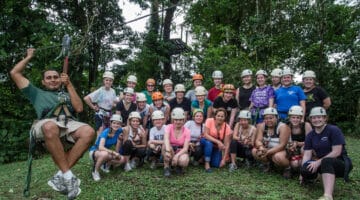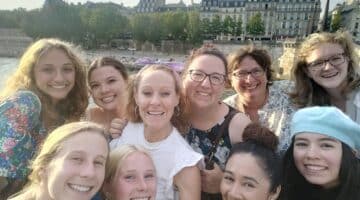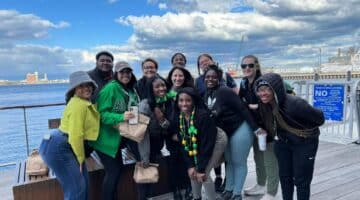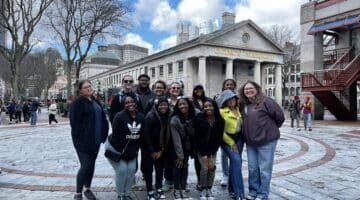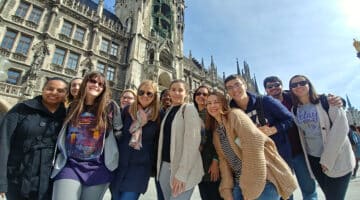5 Things to Look for in a Service Learning Project for Your Students
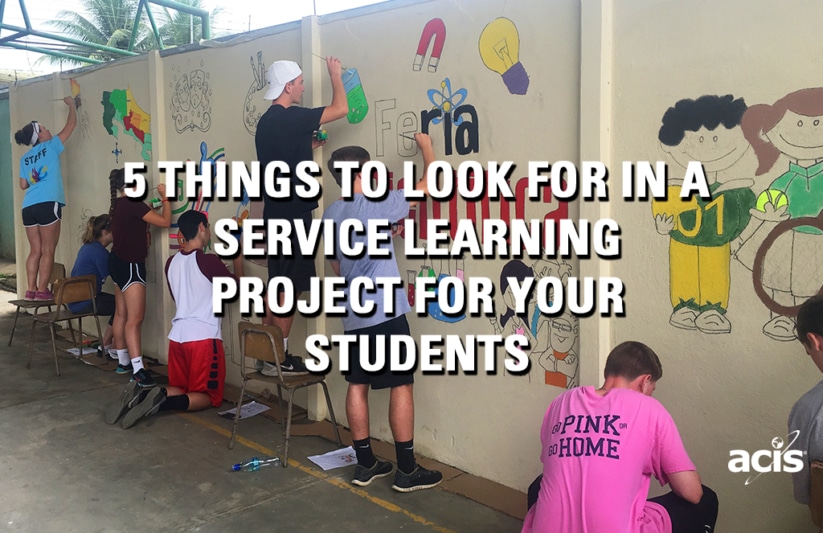
Margaret Mead once said, “Never doubt that a small group of thoughtful dedicated citizens can change the world; indeed it’s the only thing that ever has.” That philosophy underlies ACIS’ mission to empower students to become the next generation of global citizens. We believe exposing students to foreign cultures helps bring about a heightened sense of awareness and responsibility around global issues.
As much as any trips we offer, our suite of Service Learning Trips seek to accomplish that goal. In all of our itineraries built around service learning projects, we follow a set of guidelines intended to optimize the experience for the students as well as the community being served. We seek to avoid providing students with an experience they won’t find meaningful, or providing communities with assistance that isn’t helpful or sustainable.
Here are the 5 guidelines around which we build our service learning programs:
1. Meets a Real Need
Before we send students to a given area to volunteer their time, we ask the community for guidance around what would be most helpful to them and what could students coming in for a short period of time do that would make a positive impact. We don’t want students to travel all the way to a foreign country just to do some busy work for a few days; we want students to take on a project that will teach them about the community they’re serving by addressing the needs of that community in a meaningful, sustainable way. Whether that’s in a community, environmental or cultural exchange context, we want to make a lasting positive impact on both the community and the student volunteers.
2. Engages Community Partners
In any of the areas in which we undertake service learning projects, we’ve established long-term relationships with the communities we’re seeking to help. We work with local organizations to identify the communities that are in need of assistance, and we follow their guidance on how we can be of most help. Whether it’s painting a mural at a community center, maintaining habitats at an animal rescue center, or collecting data at a biological research site, we seek out projects to which various groups of students can contribute over the long-term. Without the partnership of members of the communities we serve, we wouldn’t be able to accomplish that goal.
3. Relates to Subject Matter
What separates service learning from volunteer time is service learning relates back to an academic subject and helps the students learn and apply it in a very real, hands-on way. Educational travel is designed to extend the classroom to the real world, and adding a service learning component to a trip allows students to take on a project that teaches them about a given subject matter in a functional, concrete way. Students can read about sea turtle habitats in a text book or simulate scenarios to speak a foreign language in school, but having a real-world context to apply those lessons provides a much deeper incentive to learn.
4. Students are Engaged as Leaders
Service learning provides opportunities for students to develop and use a wide range of talents. When students are given the opportunity to take on challenges in a new context and environment, they’re able to develop skills they can bring back with them to apply to their life and community at home. Experiences that shape students’ perspectives and widen their scope of the world can have lasting impacts throughout their lives.
5. Time is Set Aside for Reflection
Volunteering in a foreign country can be an incredibly life-changing experience for a young person. It’s something that will carry on as a vivid memory for years to come, which is why the work of processing those experiences and relating them to the larger context of their academics is so important. Students need to make the connection between the work they do abroad and its potential for impact in their home context for it to be integrated into their daily lives. While they may have traveled all the way to China to learn how impactful it is to serve a community in need, there’s a good chance their own community or a community close by them is in need of their service as well.
Empowering educators to turn their students into global citizens is part of our core mission at ACIS. Service learning is one powerful way to do so, especially when service learning programs follow these five guidelines.
Interested in seeing what opportunities ACIS provides for service learning trips? Check out our service learning projects here!
FREE LESSON PLAN
Global Citizenship Workshop
Help Your Students Understand Their Role as Global Citizens.


